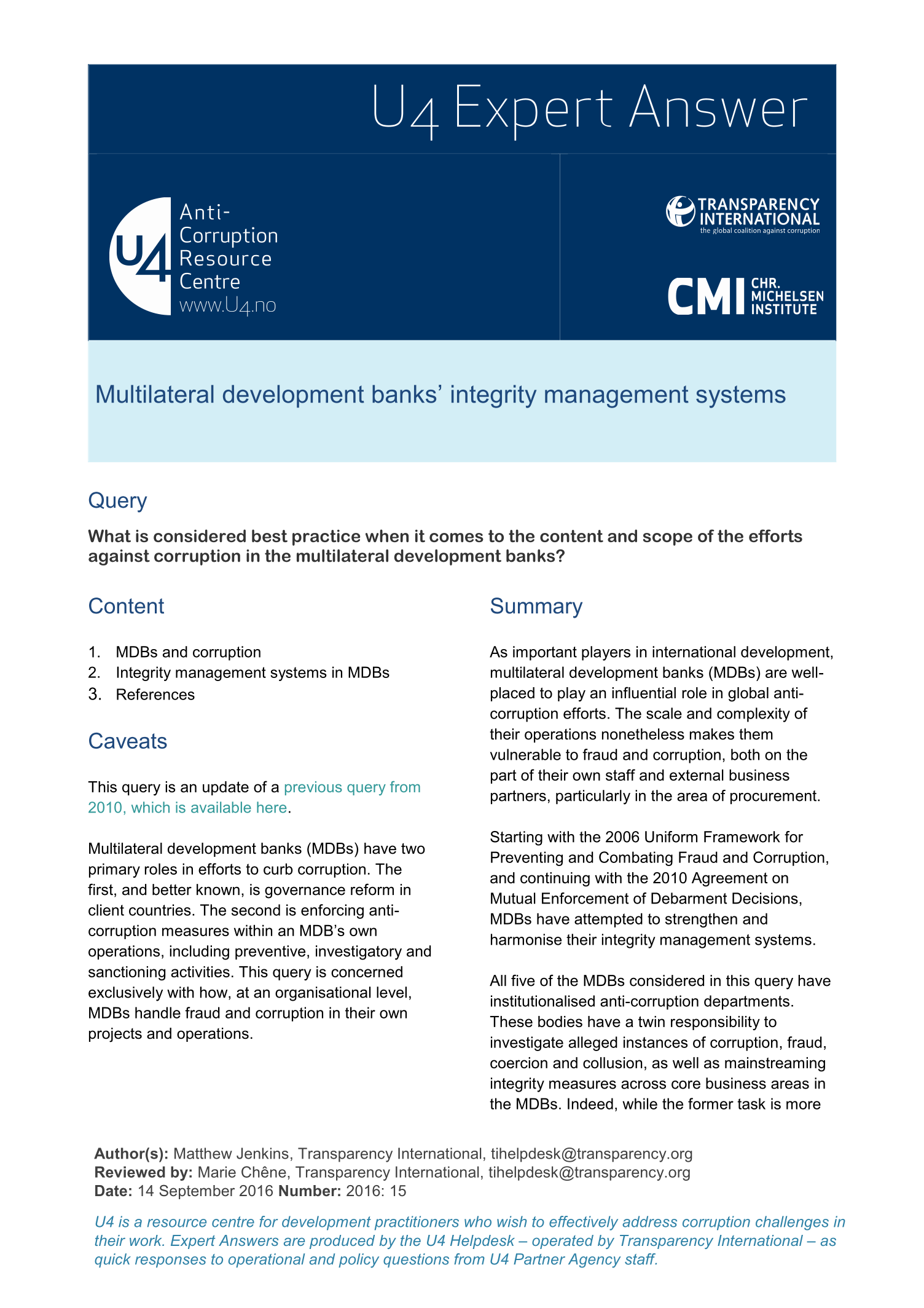U4 Helpdesk Answer
Multilateral development banks’ integrity management systems
As important players in international development, multilateral development banks (MDBs) are well-placed to play an influential role in global anti-corruption efforts. The scale and complexity of their operations nonetheless makes them vulnerable to fraud and corruption, both on the part of their own staff and external business partners, particularly in the area of procurement.
Starting with the 2006 Uniform Framework for Preventing and Combating Fraud and Corruption, and continuing with the 2010 Agreement on Mutual Enforcement of Debarment Decisions, MDBs have attempted to strengthen and harmonise their integrity management systems.
All five of the MDBs considered in this query have institutionalised anti-corruption departments. These bodies have a twin responsibility to investigate alleged instances of corruption, fraud, coercion and collusion, as well as mainstreaming integrity measures across core business areas in the MDBs. Indeed, while the former task is more conspicuous, perhaps the real challenge for MDB integrity teams is to go beyond providing ad-hoc advice to embed corruption risk management into the banks’ risk management frameworks.

Cite this publication
Jenkins, M. 2016. Multilateral development banks’ integrity management systems. U4 Expert Answer 2016:15
Disclaimer
All views in this text are the author(s)’, and may differ from the U4 partner agencies’ policies.
This work is licenced under a Creative Commons Attribution-NonCommercial-NoDerivatives 4.0 International licence (CC BY-NC-ND 4.0)

